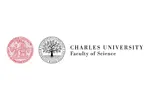

Faculty of Science, Czech Republic (the)
Visit course webpageProject summary:
Asymmetric organocatalysis has grown into one of the pillars of asymmetric catalysis, employing various small organic molecules as efficient catalysts, including N-heterocyclic carbenes (NHC). NHCs can efficiently catalyze transesterifications, acylations, polymerizations, and other reactions, and they also found widespread application as ligands in transition metal catalysis. Whereas NHCs containing imidazolylidene framework dominate as ligands in transition metal catalysis (to stabilize coordinatively unsaturated active species), triazolylidene carbenes are the main players in catalytic processes using NHC as catalysts. The vast majority of enantioselective transformations catalyzed by NHCs proceed through the umpolung of aldehydes. In the last few years, azolium dienolate as an interesting intermediate generated from carbonyl compounds and NHC, has received attention as an alternate strategy for remote functionalization (?-position of enals). We have recently developed new type of enantioselective formal cycloadition reaction based on azolium dienolate chemistry. The goal of the project is to develop new enantioselective carbon-carbon bond-forming reactions and the construction of biologically relevant (hetero)cyclic molecules based on azolium dienolates. Requirements: M.Sc. degree in organic chemistry, organometallic chemistry or related fields, experience with synthesis and characterization of small molecules, strong interest in organic synthesis and catalysis, open to learning new techniques and working in a team, good knowledge of English.
Selected recent publications of the research group:
1. L
Learn more about Development of New Enantioselective Reactions Using N-Heterocyclic Carbenes, PhD - at Faculty of Science
Visit course webpageContact Faculty of Science to find course entry requirements.
This text facilitates quick navigation of the various types of scholarships but does not provide a full list of rules and policies regulating this field. The granting and payments of scholarships is governed primarily by the Scholarships and Bursaries Rules of Charles University (cuni.cz/UKEN-727.html), the Rules for Granting Scholarships at FSc, and the relevant measures issued by the Dean (natur.cuni.cz/fakulta/studium/bc-nmgr/predpisy-a-poplatky/stipendia; Czech only).
Students may obtain the following scholarships:
Certain scholarships are granted to students automatically (without student applications), whereas others are granted further to an application (electronic or paper, depending on the type of scholarship). Bursaries are neither taxed nor included in stated income. You can find answers to frequently asked questions regarding scholarships on the Faculty website (natur.cuni.cz/fakulta/studium/helpdesk/faq-stipendia; Czech only).
For more information check our dedicated website.
There are 136 other courses listed from Faculty of Science. A selection of these are displayed below:
A postdoctoral position to study thermal effects in landslides Postdoc
Faculty of Science
Find out moreActivation of STING signaling in tumors associated with human papillomaviruses PhD
Faculty of Science
Find out moreSee other universities in Prague
Find out more about studying in Czech Republic (the)